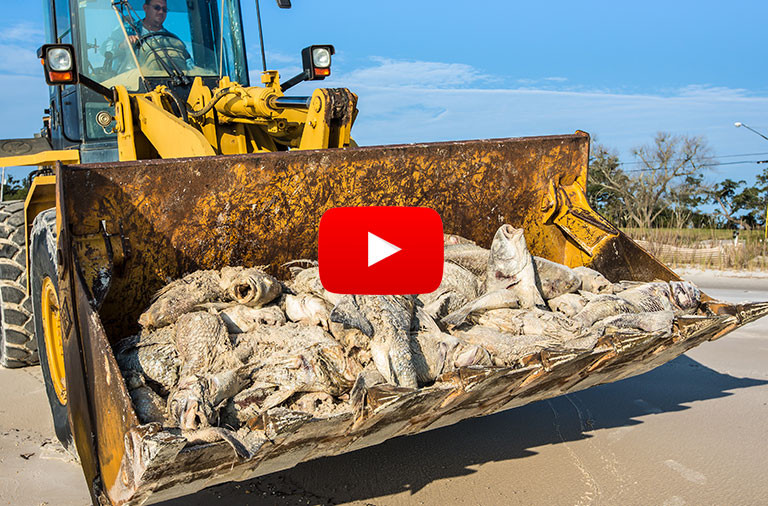In nature, waste from one organism is food for another. However, that principle sometimes breaks down and waste becomes poison. Humans aren’t the only possible sources of environmental pollution. But these days the vast majority of pollution does come from human activities. That’s because we humans are able to use energy and tools to extract, transform, use, and discard ever-larger quantities of natural resources, producing wastes of many kinds and in ever-larger quantities.
Here, Richard Heinberg explores the topic of pollution — in particular greenhouse gas emissions, which are the greatest threat to humans and other species.
This is the fifth video in our 22-part online course “Think Resilience: Preparing Communities for the Rest of the 21st Century,” which explores how communities can build resilience in the face of our intertwined sustainability crises. The series is intended for students and concerned individuals of all ages.
View Chapter 3: Population & Consumption
New chapters will be rolled out on a regular basis over the coming weeks, but you can also sign up to view all the videos right away.
Image Credits
- Cyanobacteria: SrjT/Shutterstock.com
- Slaves in mines of Laurium: Public Domain
- Potosi Silver Mines: Mining in Potosí, an engraving from Theodoor de Bry in Historia Americae sive Novi Orbis , 1596
- Leather tannery in Europe: Wellcome Libary/Creative Commons
- Fish kill event Gulf Coast: Julie Dermansky/juliedermansky.photoshelter.com
- Video: plastic bags floating in Ocean: longjourneys/Videoblocks.com
- Coal power plants in China: Balu/Shutterstock.com
- Guard in Beijing with mask: testing/Shutterstock.com
- Thermal power plant in Moscow: Ranglen/Shutterstock.com
- Natural gas pipelines: Rudmer Zwerver/Shutterstock.com
- Automobile tailpipe emissions: Orlando_Stocker/Shutterstock.com
- Cattle in feed lot, Brazil: Alf Ribeiro/Shutterstock.com
- Deforestation and agriculture: BMJ/Shutterstock.com
- Tilling soil: Standret/Shutterstock.com
- Irrigation line locked due to drought: Eddie J. Rodriquez/Shutterstock.com
- Drought in TX: Julie Dermansky/juliedermansky.photoshelter.com
- Flooded neighborhood in LA: Julie Dermansky/juliedermansky.photoshelter.com
- Pool under water in LA: Julie Dermansky/juliedermansky.photoshelter.com
- House beach NJ Sandy: Julie Dermansky/juliedermansky.photoshelter.com




